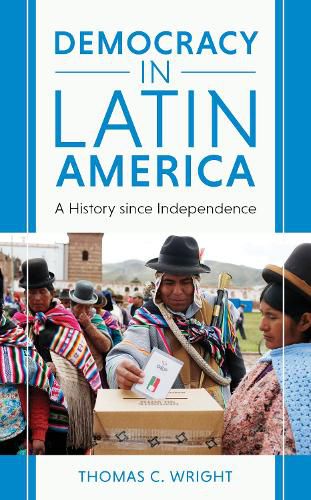Readings Newsletter
Become a Readings Member to make your shopping experience even easier.
Sign in or sign up for free!
You’re not far away from qualifying for FREE standard shipping within Australia
You’ve qualified for FREE standard shipping within Australia
The cart is loading…






This book expertly traces the long, erratic, and incomplete path of Latin America’s political and socioeconomic democratization, from a group of colonies lacking democratic practice and culture up to the present. Using the lens of democracy defined by the charter of the Organization of American States (OAS), it examines the periods of US gunboat diplomacy in the Caribbean Basin, the Cold War, the state terrorist dictatorships of the 1970s and 1980s, the imposition of neoliberalism in the 1990s, and the rise of the Pink Tide in the new millennium. The meaning of democracy has changed over time, from nineteenth-century liberalism–in which individuals were responsible for their economic and social conditions–to governments in the twentieth century that have embraced socioeconomic democracy by assuming responsibility for citizens’ welfare. Latin America’s movement toward democracy has also not been linear. The book follows the appearance and evolution of both proponents and opponents of democracy over the last two centuries. The balance of these forces has shifted periodically, often in waves that swept across the entire continent. Commitment to democracy does not guarantee implementation, but despite many setbacks, Latin America has made significant progress toward the democratic aspirations set forth in the OAS charter. Thorough and accessibly written, Democracy in Latin America is an essential text for students studying Latin American politics and history.
$9.00 standard shipping within Australia
FREE standard shipping within Australia for orders over $100.00
Express & International shipping calculated at checkout
This book expertly traces the long, erratic, and incomplete path of Latin America’s political and socioeconomic democratization, from a group of colonies lacking democratic practice and culture up to the present. Using the lens of democracy defined by the charter of the Organization of American States (OAS), it examines the periods of US gunboat diplomacy in the Caribbean Basin, the Cold War, the state terrorist dictatorships of the 1970s and 1980s, the imposition of neoliberalism in the 1990s, and the rise of the Pink Tide in the new millennium. The meaning of democracy has changed over time, from nineteenth-century liberalism–in which individuals were responsible for their economic and social conditions–to governments in the twentieth century that have embraced socioeconomic democracy by assuming responsibility for citizens’ welfare. Latin America’s movement toward democracy has also not been linear. The book follows the appearance and evolution of both proponents and opponents of democracy over the last two centuries. The balance of these forces has shifted periodically, often in waves that swept across the entire continent. Commitment to democracy does not guarantee implementation, but despite many setbacks, Latin America has made significant progress toward the democratic aspirations set forth in the OAS charter. Thorough and accessibly written, Democracy in Latin America is an essential text for students studying Latin American politics and history.